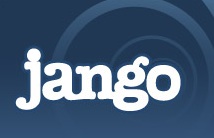
When it comes to promoting new music, pay-for-play schemes are generally frowned upon. The practice, which involves music labels or artists paying radio stations to play their songs in heavy rotation, dates back to the beginnings of terrestrial radio. It got so bad in the 1950s that Congress had to intervene, but it keeps rearing its head in new forms.
Now, pay-for-play has hit online radio. Jango, a music streaming service which claims 6 million monthly listeners, is selling paid placement to labels and artists through a program it launched last week called Jango Airplay. For as little as $30, a band can buy 1,000 plays on Jango. Each song has links to buy the song at Amazon or iTunes.
Given the scandalous history of pay-for-play on terrestrial radio, it is not surprising that people are skeptical about whether it is a good idea to bring it to the Web. Matt Rosoff at Cnet sums it up:
This tarnishes the entire service with a distinct air of “suck”.
Rosoff is under the impression that good artists don’t need to pay for promotion. I am not so sure. Bands don’t break out without some sort of promotion, whether that is paid for by their labels, or earned through new kinds of algorithmic and social promotion we are seeing with online music services from Pandora and MySpace Music to iLike to imeem.
If we accept paid placement in our search results, why should online music be any different? The real question is relevance. Either the paid promotions will make Jango a better listening experience and the experiment will pay off, or it will make it suck and alienate its listeners.
Unlike pay-for-play on regular radio, where the same songs are broadcast indiscriminately to every single listener, Jango’s Airplay songs are targeted to specific stations. The artists themselves choose what other kind of music they want to be played next to, just as an advertiser on Google chooses what keywords should trigger his advertisement. A heavy metal band might be better off buying plays on a Metallica station than on a Bob Dylan station. The whole point is to find listeners who are more likely to become fans.
In addition to being more targeted, Jango offers a feedback loop which does not exists on regular radio. Listeners can block songs from ever playing again, or they can give them a positive rating. Any Airplay song which garners 50 positive ratings gets pushed into regular rotation free of charge. In fact, a drop-down window encourages listeners to rate each Airplay song. My only problem with how this works is that the drop-down box characterizes the song as belonging to an “emerging artist” rather than clearly labeling it as an ad (see here).
It is an ad, and it should be clearly marked as such. I am okay with this sort of promotion as long as t is targeted to my listening preferences. The way Jango has it working now, any given listener will hear an AirPlay song no more than once every two hours, and no listener will hear the same Airplay song more than once a day. That is certainly better than listening to the same blaring commercial for auto insurance every 20 minutes.
But Jango needs to make its promotion algorithm a little more sophisticated. Even before promoting songs with 50 positive ratings to regular rotation, Airplay songs that get rated highly should get played more often, or be cheaper to promote. Just as paid search ads that get clicked on more often are cheaper to the advertiser because they are more relevant, songs which resonate more with their targeted audience should get more promoted plays.
Designed correctly, there is a place for paid promotion in music, despite what the purists might think.
